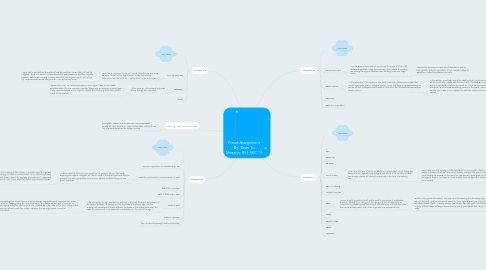
1. Setting: the Victorian Era
1.1. During the Victorian era, Europe was a very suppressed society. As many people are super conservative and could not fully express themselves like today's society.
2. Chapter 5
2.1. Main Ideas
2.2. Love thy neighbor
2.2.1. "but if he is a stranger to me and cannot attract me by any value he has in himself or any significance he may have already acquired in my emotional life, it will be hard for me to love him."
2.2.1.1. I agree with Freud with his thoughts of love thy neighbor. When i think of love thy neighbor I think of a earlier time period where it was possible to trust thy neighbor. However, with today's society it is very difficult to trust anyone. So its hard to love thy neighbor when we are living in such a corrupt society today.
2.3. Narcissim
2.3.1. "If this were so, culture would not need to levy energy from sexuality."
2.3.1.1. I agree with Freud. As I believe everyone in some type of way are narcissism. Everyone role in life is to reproduce and find happiness. So everyone in some type of way view themselves as love objects. Objects that are trying to find the perfect match for themselves.
2.4. Libido
3. Chapter 6
3.1. Main Ideas
3.2. Pleasure principle
3.2.1. "on the basis of speculations concerning the origin of life and of biological parallels, i drew the conclusion that, beside the instinct preserving the organic substance and binding it into ever larger units."
3.2.1.1. I believe the pleasure principle Freud describes is just our basic genetic desire to reproduce. Its our animistic nature to reproduce created the pleasure principle.
3.3. Death Instincts
3.3.1. "The assumption of teh existence of a death instinct or a destruction instinct has roused opposition even in analytical circles; I know that there is a great tendency to ascribe all that is dangerous and hostile in love rather to a fundamental bipolarity in its own nature."
3.3.1.1. In this section, Freud talks about the death instinct. Freud discuss how everything has a death instincts and will die eventually. I agree with this because it's fact that all living things must die. We are all creatures of time and not matter what we do we will die. Since, we are creatures of time we must use the short amount of time given to us to leave something positive in the world. I feel Freud understood that but because of the era and time it was a very negative era and that is why came up with such a dark definition for the death instinct.
3.4. Narcissism
3.5. Instinctual Disposition
4. Chapter 7
4.1. Main Ideas
4.2. Ego
4.3. Super ego
4.4. Remorse
4.5. Social anxiety
4.5.1. "If he loses the love of others on whom he is dependent, he will forfeit also their protection against many dangers, and above all he runs the risk that this stronger person will show his superiority in the from of punishing him."
4.5.1.1. Freud idea on social anxiety is a little bias as it's for one specific situation. As there are many different situations that can cause social anxiety. However, the specific situation would cause social anxiety for anyone. As the lost of an love one will cause great emotional and physical damage to anyone. His ideas for social anxiety does not expand to every scenario that can cause social anxiety.
4.6. Fear of authority
4.7. Oedipal complex
4.8. Guilt
4.8.1. "Sense of guilt, it manifests itself as the need for punishment. Civilization, therefore, obtains the mastery over the dangerous love of aggression in individuals by enfeebling and disarming it and setting up an institution within their minds to keep watch over it, like a garrison in a conquered city."
4.8.1.1. Guilt is a very powerful emotion. The way Freud discusses guilt is the way people during that time period dealt with guilt. People would search for some type of punishment to help cope with their emotional stress of guilt. In today, society I feel people deal with guilt in a different way. As they look for different ways to forgive themselves by doing good deeds that can give them a clean slate.
4.9. Fetish
4.10. Infantile stage
4.11. Libido
4.12. Agression
5. Chapter 8
5.1. Main Ideas
5.2. Neurotic symptoms are substitutes for sex
5.3. Need for punishment vs Consciousness of Guilt
5.3.1. "It dominates the clinical picture as well as the patient's life and lets hardly anything else appear alongside of it. But in most of the other types and forms of neurosis it remains completely unconscious, without its effect being any less great, however."
5.3.1.1. Its interesting how guilt affect some people but it does not affect others. Freud discussed that people who are not affected by guilt and are suppressing it in their unconsciousness. Its an interesting theory to apply to people who doesn't feel guilty and doesn't search for any type of punishment. However, it can just be that those people love themselves to much to see what they did wrong and would never hurt themselves for someone else.
5.4. fear of the superego
5.5. Guilt of filled erotic urges
5.6. sense of guilt
5.6.1. "The perception the ego has that it is watched in this way, the ego's appreciation of the tension between its striving and the standards of the super-ego; and the anxiety that lies behind all these relations, the dread of that critical institution, the need for punishment, is an instinctual manifestation on the part of the ego."
5.6.1.1. Its interesting how Freud theories in some strange way make sense. As people can relate to what he is saying about the consciousnesses. The reason we feel guilt is because our super-ego is being too hard on us for the mistakes we make. Due, to the strict nature of the super-ego we will create this critical institution that our ego pursuit a need for punishment.
